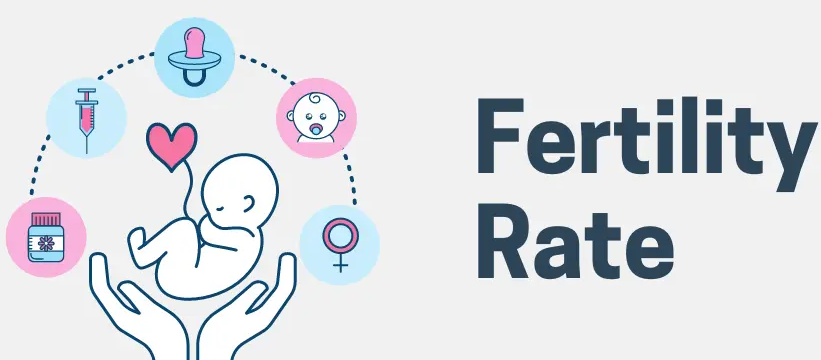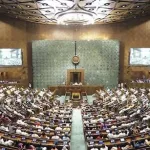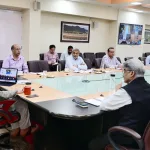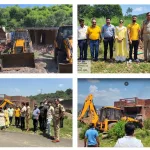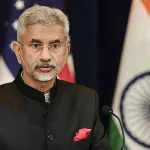Total Fertility Rate (TFR) is a complex demographic indicator that measures the average number of children a woman would have during her reproductive years under current age-specific fertility rates. TFR is a sensitive metric, deeply connected to social, cultural, and healthcare dynamics. In a region like Jammu and Kashmir, with its unique socio-political and cultural landscape, misinterpretation or sensationalism in reporting on TFR can have far-reaching consequences.
Unfortunately, recent newspaper columns and stories on TFR have raised significant concerns about inaccuracies in data interpretation and sensationalism, fueled by journalists who may lack expertise in healthcare data collection and analysis. This critical analysis examines the critical issues surrounding the reporting of TFR in Jammu and Kashmir, emphasizing the need for responsible journalism, validated data collection, and the role of the Jammu and Kashmir Medical Council of India (JKMCI) in regulating the dissemination of such sensitive information.
TFR: A Complex Indicator Requiring Expertise
TFR is not a straightforward metric. Its accurate calculation requires robust data collection and analysis, considering various factors such as population demographics, healthcare accessibility, socio-economic conditions, and cultural practices. Misinterpretation or oversimplification of TFR can lead to flawed narratives that may fuel public anxiety or misinformation. For instance, TFR is often influenced by the availability of healthcare facilities, the prevalence of infertility, and cultural attitudes toward family size. In Jammu and Kashmir, many couples facing infertility prefer seeking treatment outside the state due to privacy concerns. This migration for healthcare services results in incomplete local data, which undermines the accuracy of TFR calculations based on hospital-based studies.
Key Challenges in Reporting TFR in Jammu and Kashmir
Lack of Robust Data Collection and Validation: Newspaper articles often fail to provide details on how the data was collected, validated, or analyzed. Key questions remain unanswered:
- Sample Size: Was the data derived from a population-based or hospital-based study?
- Data Collection: Who collected the data, and were they adequately trained?
- Coverage: How many cases were missed during the data collection process?
Without answers to these questions, the conclusions drawn are speculative at best and misleading at worst. A significant gap exists in the availability of a centralized or unified register for infertile couples, further complicating the accuracy of TFR calculations.
Unregistered Infertility Centers and Privacy Concerns
Many infertility centers in Jammu and Kashmir operate without registration, and a large percentage of infertile couples avoid local consultations altogether, opting for treatments outside the state. This lack of local consultation stems from the desire for privacy, which is deeply ingrained in the region’s cultural ethos. Consequently, data collected locally is often incomplete or unrepresentative, leading to skewed TFR interpretations. Most Infertility patients don’t report, register or get treated locally due to privacy issues so they escape any data collection that puts another Question mark on the data published in newspapers.
Sensationalism in Reporting
Journalists may sensationalize the issue by presenting partial or unvalidated data without considering its limitations. Such reporting can create unnecessary public concerns or misdirect policy discussions. Sensational headlines often overshadow the nuanced understanding required for demographic indicators like TFR, which should be informed by healthcare and demographic expertise.
The Role of Responsible Journalism
Journalists play a vital role in shaping public discourse, but this role comes with the responsibility to ensure accuracy and accountability. Reporting on sensitive issues like TFR requires a meticulous approach, including:
- Consulting Experts: Articles should involve inputs from healthcare professionals, demographers, and statisticians to provide an accurate interpretation of data.
- Transparency in Methods: Reports should disclose how the data was collected, selected, (places of collection or sample size) its limitations, and whether it was validated by relevant authorities.
- Avoiding Sensationalism: Headlines and narratives should avoid alarmism, focusing instead on presenting balanced and factual information.
The Role of JKMCI in Regulating Data Publication
The Jammu and Kashmir Medical Council of India (JKMCI) can play a pivotal role in ensuring accurate and responsible reporting. The council should implement a framework that includes:
- Validation Protocols: All healthcare-related data intended for publication should be validated by the JKMCI or an equivalent body to ensure accuracy and reliability.
- Training for Journalists: Workshops or training programs can be organized to educate journalists about healthcare data collection and analysis.
- Publication Guidelines: Newspapers and media outlets should adhere to strict guidelines that mandate consultation with healthcare experts and adherence to ethical standards.
The Broader Implications of Misrepresentation
The misrepresentation of TFR is not just a journalistic oversight but a public health concern. Flawed narratives can misguide policy decisions, misinform the public, and even stigmatize certain communities or practices. Accurate reporting is essential to:
- Inform Public Policy: Reliable data is crucial for formulating effective healthcare and population policies.
- Enhance Public Trust: Sensationalism erodes trust in media and public health institutions.
- Promote Data-Driven Solutions: Accurate reporting fosters informed discussions and evidence-based solutions to demographic challenges.
Conclusion
The reporting of TFR in Jammu and Kashmir underscores the importance of responsible journalism and validated data. Journalists must exercise caution and professionalism, ensuring that their work adheres to ethical standards and is informed by experts. Meanwhile, the JKMCI should take proactive steps to regulate the publication of sensitive healthcare data, fostering a culture of accuracy and accountability.
As Jammu and Kashmir navigates its unique demographic and healthcare challenges, accurate and responsible reporting will play a critical role in shaping informed policies and public understanding. Sensationalism has no place in such a complex and sensitive domain; instead, a collaborative approach involving journalists, healthcare professionals, and regulatory bodies is essential for ensuring truth and transparency.
(Author is a distinguished clinical auditor and an expert in healthcare data analysis, with a prolific career spanning over two decades. He has served as the Director of Documentation and Research, contributing extensively to the development of evidence-based practices in healthcare. His insightful analyses and contributions to healthcare policy and practice make him a respected voice in the field. He can be reached at: [email protected])


